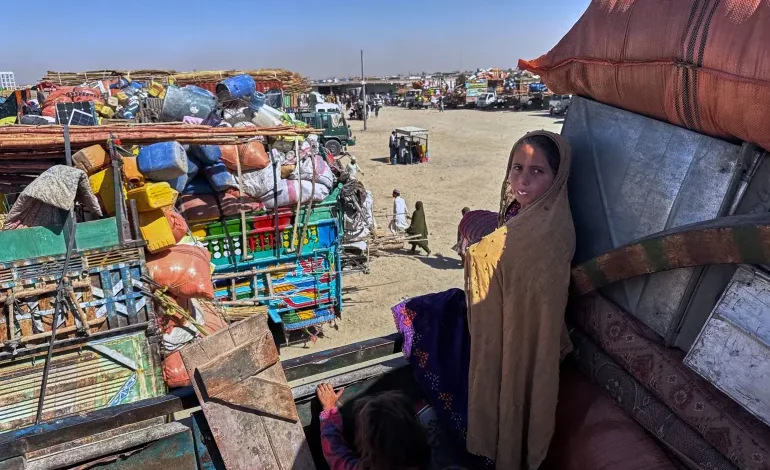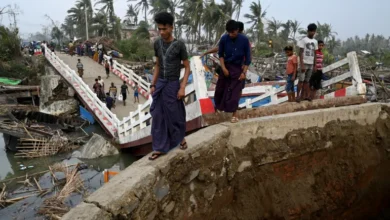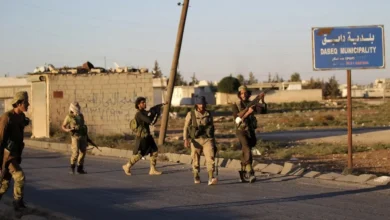‘Illegal in own homes’: Afghan refugees caught in Pakistan-Taliban tensions

Allah Meer’s parents were among the millions of Afghans who fled their country after the then-Soviet Union invaded Afghanistan in 1979.
His family settled in a refugee village in Kohat in northwestern Pakistan. That’s where Meer, now 45, was born. Meer says that more than 200 members of his extended family made the journey from Afghanistan to Pakistan, which has been their home ever since.
Over the past two years, as Pakistan has moved to send back hundreds of thousands of Afghan refugees, the family has feared for its future, but managed to evade Islamabad’s dragnet.
Last week, the threat of expulsion hit home: Pakistan announced it would close all 54 Afghan refugee villages across the country as part of the campaign it began in 2023 to push out what it calls “illegal foreigners”. These include the villages in Kohat, where Meer and his family live.
“In my life, I visited Afghanistan only once, for two weeks in 2013. Apart from that, none of my family have ever gone back,” Meer told Al Jazeera. “How can I uproot everything when we were born here, lived here, married here, and buried our loved ones here?”
Amid heightened tensions between Pakistan and the Taliban, which returned to governing Afghanistan in 2021, families like Meer’s are caught in a vortex of uncertainty.
Fighting erupted between Afghan and Pakistani forces along the border earlier in October, pushing already strained relations into open hostility. On Sunday, officials from both sides met in Qatar’s capital, Doha, and signed a ceasefire agreement, with the next round of talks scheduled in Istanbul on October 25.
Yet, tensions remain high. And families like Meer’s fear that they could become diplomatic pawns in a border war between the neighbours.
From welcome to expulsion
Pakistan has hosted millions of Afghan refugees since the Soviet invasion of Afghanistan. As civil war gripped Afghanistan and the Taliban first rose to power in 1996, successive waves of Afghans fled across the border.
After the United States invaded Afghanistan in 2001 following the September 11 attacks on the US, the Taliban’s fall prompted thousands of Afghans to return home. But their return was short-lived.
The Taliban’s stunning comeback in August 2021 triggered yet another exodus, when another 600,000 to 800,000 Afghans sought refuge in Pakistan.
However, as relations between Kabul and Islamabad soured during the past four years, Pakistan – which was once the Taliban’s principal patron – accused Afghanistan of harbouring armed groups responsible for the cross-border attacks. The government’s stance hardened towards Afghan refugees, even those who have lived in the country for decades – like Meer.










